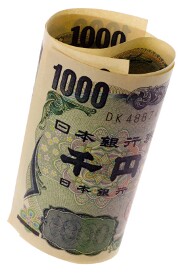
The Japanese yen is mixed against a handful of currency rivals on Thursday as a plethora of recent data could not prove the national economy was expanding or contracting. Policymakers also delved into the latest Modern Monetary Theory (MMT) proposal that is gaining steam in the US.
According to the Bank of Japan (BOJ), economic output exceeded its full capacity in the fourth quarter last year by the most in nearly three decades. The central bank estimates that the output gap was 2.2% in the October-to-December period, which would be positive for the ninth consecutive quarter.
A positive output gap takes place when actual output exceeds the economyâs capacity. This occurs when factories and workers operate above their most efficient level to meet demand.
Last month, business activity growth slumped, expanding at the slowest pace since September 2016. The Nikkei Composite purchasing managersâ index (PMI) tumbled to 50.4 in March, from 50.7 in February. Analysts are pointing to the PMI as further evidence that the Japanese economy will struggle to grow in 2019.
A separate survey highlighted a somber tone among the nationâs business community. The BOJ reported the results of its closely watched Tankan survey that found business confidence plunged to a two-year low in the first quarter, falling at the fastest pace since December 2012. The BOJ cited concerns over the US-China trade war and cooling global demand.
Meanwhile, Tokyo is having a discussion about Modern Monetary Theory (MMT), a monetary policy proposal gaining popularity in the US. According to MMT proponents, the government, not the central bank, would expand the money supply. Instead of injecting the newly-printed money into credit markets, it would be sent directly to the treasury. MMT is meant to spur employment and boost inflation.
Would the Japanese government be interested in MMT? Finance Minister Taro Aso warned that using state spending as a main policy tool to stimulate growth would backfire on the worldâs third-largest economy because of its enormous debt levels.
Itâs an extreme idea and very dangerous because it would weaken fiscal discipline. I have no intention of making Japan a platform for experimenting such ideas.
BOJ governor Haruhiko Kuroda echoed Asoâs sentiment in the Japanese parliament.
The USD/JPY currency pair rose 0.05% to 111.55, from an opening of 111.50, at 17:35 GMT on Thursday. The EUR/JPY slipped 0.07% to 125.13, from an opening of 125.25.
If you have any questions, comments, or opinions regarding the Japanese Yen, feel free to post them using the commentary form below.